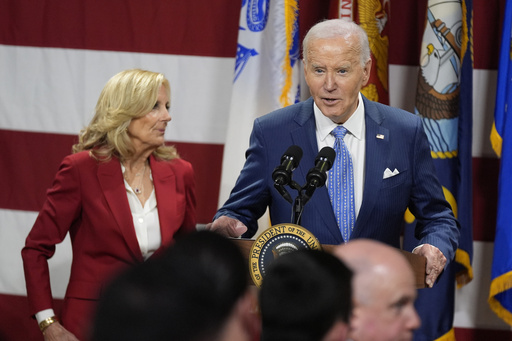WASHINGTON — A new proposal introduced by the Biden administration could potentially allow millions of Americans suffering from obesity to access popular weight-loss medications such as Wegovy and Ozempic through Medicare or Medicaid. This significant move by the U.S. Department of Health and Human Services may lead to a clash with the strong pharmaceutical sector and with Robert F. Kennedy Jr., a notable critic of these weight-loss drugs, who is being considered by President-elect Donald Trump for the head position at the agency, thus raising questions about whether this initiative could face obstacles.
The proposed rule aims to ensure broader access to these weekly injectable medications, known for their remarkable effectiveness in weight loss. However, implementing this plan could potentially cost taxpayers around $35 billion over the next ten years. U.S. Health and Human Services Secretary Xavier Becerra expressed optimism about the proposal, stating, “It’s a good day for anyone who suffers from obesity. It’s a game changer for Americans who can’t afford these drugs otherwise.”
A bipartisan group of congressional leaders has been advocating for the inclusion of these medications in Medicare coverage, arguing that such a measure could ultimately save the government from incurring substantial costs associated with obesity-related chronic conditions. Despite uncertainty regarding Trump’s position on the coverage, his associates and potential Cabinet members focused on budget cuts might challenge the upfront expenses.
The proposal stipulates that only individuals classified as obese, determined by a body mass index (BMI) of 30 or higher, would be eligible for coverage. Some individuals may already receive coverage through Medicare or Medicaid if they have diabetes or are at risk for heart disease or stroke. Becerra estimates that approximately 3.5 million Medicare beneficiaries and 4 million Medicaid recipients could qualify for the drug coverage, although research indicates that the actual number may be much higher, with around 28 million Medicaid recipients being classified as obese according to the Centers for Medicare and Medicaid Services.
For many years, Medicare has been prohibited from covering weight-loss medications due to a long-standing law that disallows government-sponsored insurance from covering such products. Nonetheless, the new rule proposed by the Biden administration would acknowledge obesity as a chronic disease treatable through medication.
The market for anti-obesity drugs has grown significantly in recent years, particularly with the Food and Drug Administration approving a new class of weekly injectables, including Novo Nordisk’s Wegovy and Eli Lilly’s Zepbound, specifically for obesity treatment. Users of these medications can expect weight loss of anywhere from 15% to 25% of their body weight, as they work by mimicking hormones that signal fullness between the gut and brain during eating.
The high costs associated with these medications have generally restricted their use to wealthier individuals, often celebrities who openly promote their benefits. Wegovy averages around $1,300 per month, while Zepbound costs approximately $1,000. Additionally, current shortages of these drugs have further limited availability for potential users.
Kennedy, nominated by Trump to lead the Department of Health and Human Services and awaiting Senate confirmation, has been outspoken against the rising popularity of weight-loss drugs. He has argued, both in speeches and on social media, that the U.S. should not subsidize these medications through Medicare or Medicaid. Instead, he advocates for an extensive increase in coverage aimed at healthier food options and gym memberships.
“For half the price of Ozempic, we could purchase regeneratively raised, organic food for every American, three meals a day, along with a gym membership for every obese American,” Kennedy remarked during a roundtable discussion with federal lawmakers earlier this year.
